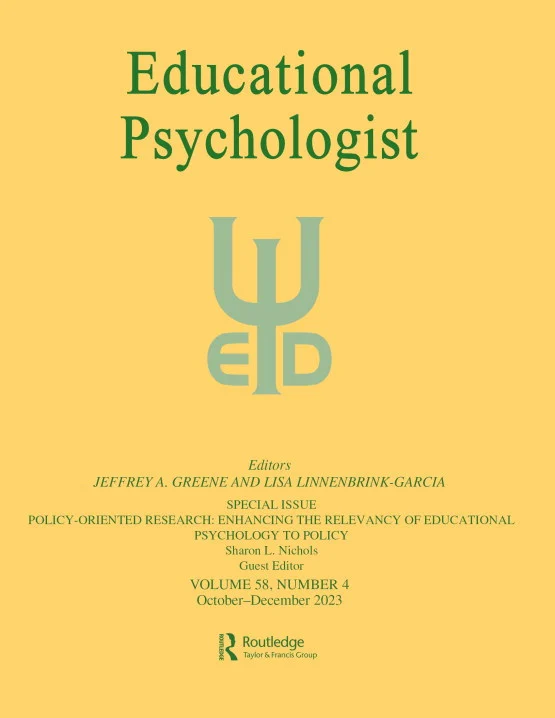Teacher motivation and student outcomes: Searching for the signal
IF 11.4
1区 心理学
Q1 EDUCATION & EDUCATIONAL RESEARCH
引用次数: 21
Abstract
Abstract Recent years have witnessed a burgeoning interest in the study of teacher motivation. Although links between teacher motivation and teacher well-being, commitment to the profession, and other teacher-related outcomes are well-documented, prior research on associations between teacher motivation and student outcomes has been less consistent. This article focuses on teacher motivation as situated within two prominent frameworks: self-determination theory and achievement goal theory. First, two systematic reviews of research on self-determination theory and achievement goal theory are conducted to examine whether, when, how, and why teachers’ motivation may influence—or at least relate to—which student outcomes. The processes by which teacher motivation is associated with student outcomes, such as via specific instructional strategies, are also taken into account. Second, the question of why research on teacher motivation often fails to find consistent effects on student outcomes is considered, including where in the complex chain of events from teacher motivation to student outcomes the signal gets lost. Third, the need to study the reverse ordering of effects, reciprocal effects, and the dynamic interplay between teacher motivation and student outcome variables is discussed.教师动机与学生成绩:寻找信号
近年来,人们对教师动机的研究兴趣日益浓厚。尽管教师动机与教师幸福感、对专业的承诺以及其他与教师相关的结果之间的联系有充分的证据,但之前关于教师动机与学生成绩之间关系的研究并不一致。本文主要从自我决定理论和成就目标理论两个主要框架来研究教师动机。首先,对自我决定理论和成就目标理论的研究进行了两次系统的回顾,以检验教师的动机是否、何时、如何以及为什么会影响或至少与哪些学生的成绩有关。教师动机与学生成绩相关联的过程,例如通过特定的教学策略,也被考虑在内。其次,为什么对教师动机的研究经常不能发现对学生成绩的一致影响的问题被考虑,包括在从教师动机到学生成绩的复杂事件链中信号丢失的地方。第三,探讨了教师动机与学生结果变量之间的反向效应、互惠效应以及动态相互作用的必要性。
本文章由计算机程序翻译,如有差异,请以英文原文为准。
求助全文
约1分钟内获得全文
求助全文
来源期刊

Educational Psychologist
Multiple-
CiteScore
19.10
自引率
3.40%
发文量
16
期刊介绍:
The Educational Psychologist is a scholarly journal dedicated to exploring the psychology of learning and instruction. Articles in this journal encompass a diverse range of perspectives, from examining psychological mechanisms to exploring social and societal phenomena related to learning and instruction. The journal publishes theoretical and conceptual articles, as well as reviews and meta-analyses, that significantly contribute to theory or advance the methods used to explore educational psychology. Emphasizing innovation and advancing understanding, the journal does not publish articles solely reporting the methods and results of empirical studies; instead, all submissions, including reviews and meta-analyses, must offer clear implications for advancing theory. In addition to regular articles, the journal features special issues that delve into important themes in educational psychology, along with focal articles accompanied by peer commentary.
 求助内容:
求助内容: 应助结果提醒方式:
应助结果提醒方式:


